Blog
RISE at CIES - Political Economy Research on Improving Systems of Education
The Comparative and Education Society (CIES) Conference is one of the most prominent events for education researchers. This year’s event was hosted in Mexico City and featured a number of RISE resarchers. On Day 1 of the conference, RISE hosted a panel discussion titled: “Political Economy Research on Improving Systems of Education.” The panel featured leading academics and researchers which included RISE Research Director Lant Pritchett (Harvard University); Joan DeJaeghere (University of Minnesota, RISE Vietnam Country Research Team [CRT]); Padmini Iyer (REAL Centre, University of Cambridge, RISE Ethiopia CRT); Ken Opalo (Georgetown University, RISE Tanzania CRT); and Barbara Bruns (Center for Global Development, RISE Intellectual Leadership Team). The panel was chaired by Alec Gershberg from the University of Pennsylvania and member of the RISE Directorate.
Talking to a packed room, Alec Gershberg gave a brief description of the RISE Programme and the research being conducted by the various RISE CRTs. The first panel speaker was Lant Pritchett who discussed his latest RISE Working Paper: The Politics of Learning: Directions for Future Research. He started the discussion by pointing out that “the politics of schooling ain’t the politics of learning.” He emphasised that there are three facts about basic education in developing countries that a minimally acceptable positive political economy model of education should be capable of addressing. First, why did schooling expand so much and so uniformly across countries when it did? Second, why does governmental support for education generally (if not universally) take the form (direction production) and modality (large Weberian bureaucracies) that it does, rather than other forms and modes; alternatives that seem equally or more effective? Third, how did cross-nationally uniform political support for the expansion of schooling coexist in many countries with politics that allowed very low learning to both arise and persist in some countries, but not others? During the discussion he pointed out that the economist’s naïve “normative as positive”, that governments did things because it was the normatively optimal action (in the sense of maximising some measure of human well-being) does not hold any promise as a general model. Pritchett posed the puzzle to the participants: Meyer’s “global isomorphism”, which states that countries copy each other for no particular reason, remains a strong conjecture as a causal force in both expansion and modality; however, we need an explanation of how isomorphism facilitates the persistence of low learning quality across some of the countries, while others do well. Ending his speech in a manner we have come to expect from Pritchett, he quoted The Beatles: “Money cannot buy you love.” Expansion of schooling has been associated with controlling the socialisation of youth. Literature states that many countries have expanded education in that pursuit. Yet, some countries did very well (e.g., Vietnam) while others continue to do badly (e.g., Egypt and India). Pritchett noted that RISE research hopes to find answers to these questions.
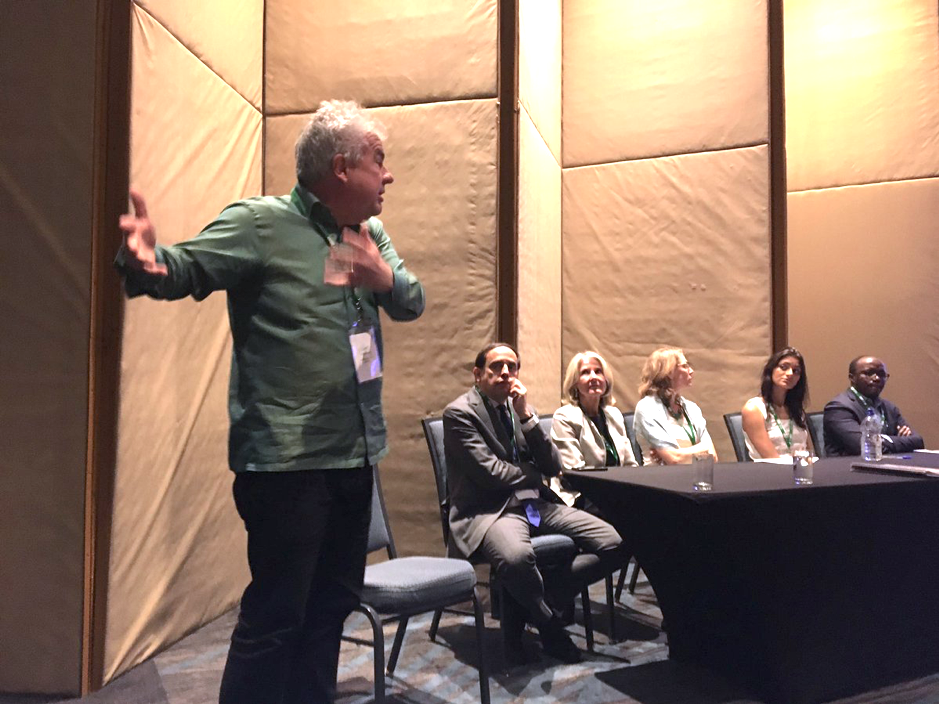
The next speaker on the RISE panel was Ken Opalo who presented a paper on political incentives on education reform in Tanzania (co-authored with James Habyarimana of Georgetown University and Youdi Schipper of the Amsterdam Institute for International Development). He started by talking about the education crisis in Tanzania by the turn of the century which resulted in a dire need to expand secondary education, due to the high enrolment and passing percentage in primary education. The CCM party mandate of expanding schooling resulted in an election win and between 2005 to 2015, Tanzania saw large numbers of schools being build alongside large enrolment, with every ward getting a secondary school. The government promised roofing and teachers after the schools were constructed; however, communities were expected to provide resources to build these schools. Individuals dedicated recourse and/or time/manual labour. This was a huge tax on the population as the district administration used force to extract the resources. As a result, there was a massive electoral hit for CCM reps in the subsequent elections. During the presentation, Opalo also observed that the increase in building schools corresponded with a deterioration in test scores and pass percentages. To combat its impact, CCM came up with a ranking system of schools across the wards; however, the ranking system had little electoral effect. Opalo ended the presentation by highlighting the complexity of the situation and pointing out that while politics does help in expanding access, it might take more than politics to improve learning outcomes.
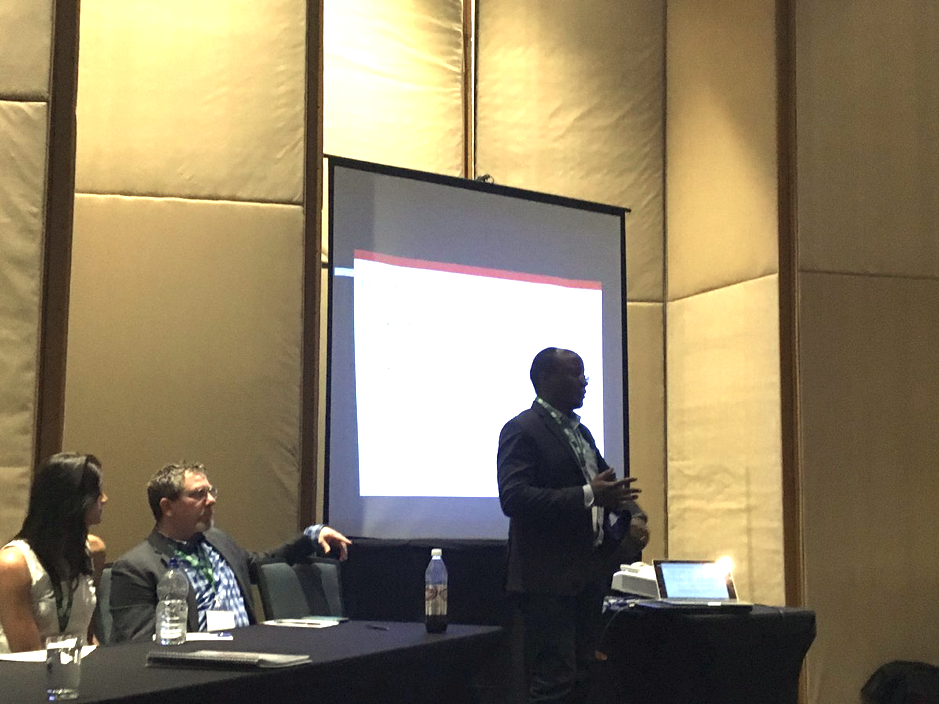
Padmini Iyer’s presentation focused on the initial findings of a paper about the political economy of large-scale education reforms in Ethiopia. The paper was written with fellow Ethiopia CRT members Pauline Rose (REAL Centre), Louise Yorke (REAL Centre), Belay Hagos (Addis Ababa University), and Tassew Woldehanna (Addis Ababa University). The main research question of the paper was to what extent does a large scale package of education reform (General Education Quality Improvement Programme [GEQIP]) work to improve equitable learning outcomes? To answer this question, it was important for the team to explore accountability relationships between different actors in the education system. By splitting the education system actors (including donors and policy makers) to reflect decentralisation in the Ethiopian system, the team was able to capture the nature of the relationships between them. The team conducted interviews with the executive at the federal level and with key donors regarding the design and implementation of GEQIP reforms. Iyer pointed out that the initial findings indicated that there is coherence concerning ownership of the equity component of the reform at federal level, but there might be incoherence at regional level. The Ethiopia CRT will explore these incoherencies further.
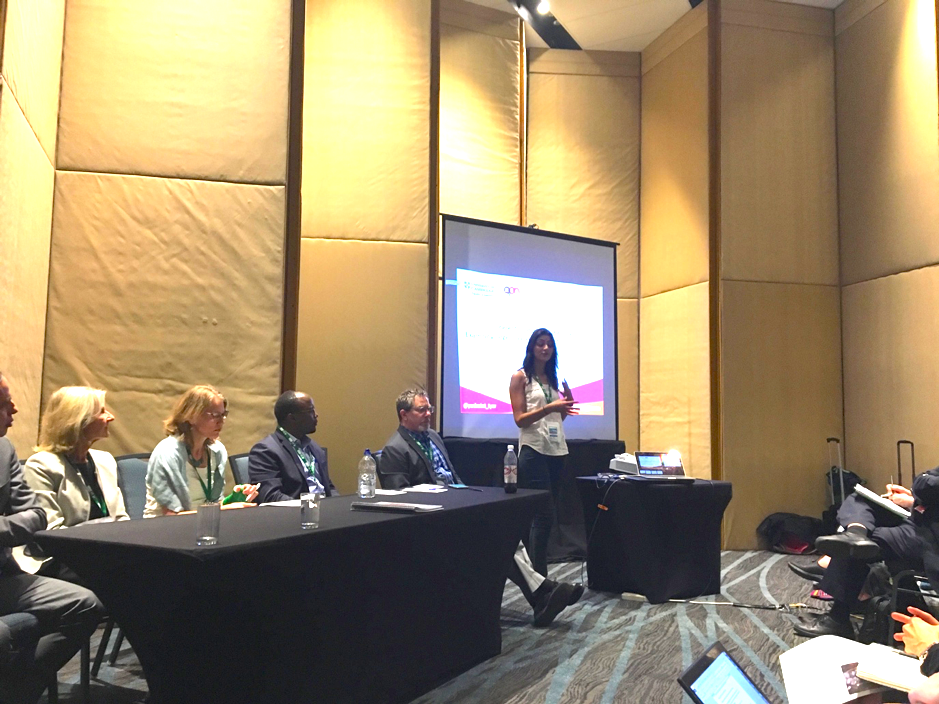
The next presenter, Joan DeJaeghere, presented preliminary findings on her forthcoming research on “International Testing and Accountability in Vietnam”, co-authored with Jonathan London (University of Leiden) and Vu Dao (University of Minnesota). DeJaeghere’s presentation focused on understanding Vietnam’s rationale for engaging in PISA. The presenter pointed out that the decision to take part in PISA was highly contested and it ultimately came down to the Deputy Prime Minister to make the decision. It was a risky decision that could have ended up backfiring politically; however, as DeJaeghere explained, the recurring positive test results of Vietnam students serves to increase the legitimacy of the government amidst a society that is very skeptical of the accuracy of the results. DeJaeghere also observed that policymakers in Vietnam have complained that the emphasis on international testing is leading to a “testing culture” among students that could end up being detrimental for long term learning outcomes. A curriculum reform focused on competencies is supported by technocrats and policymakers; however, the authoritarian character of the government does not allow either citizens or policymakers to influence the debate on priorities in education policy.
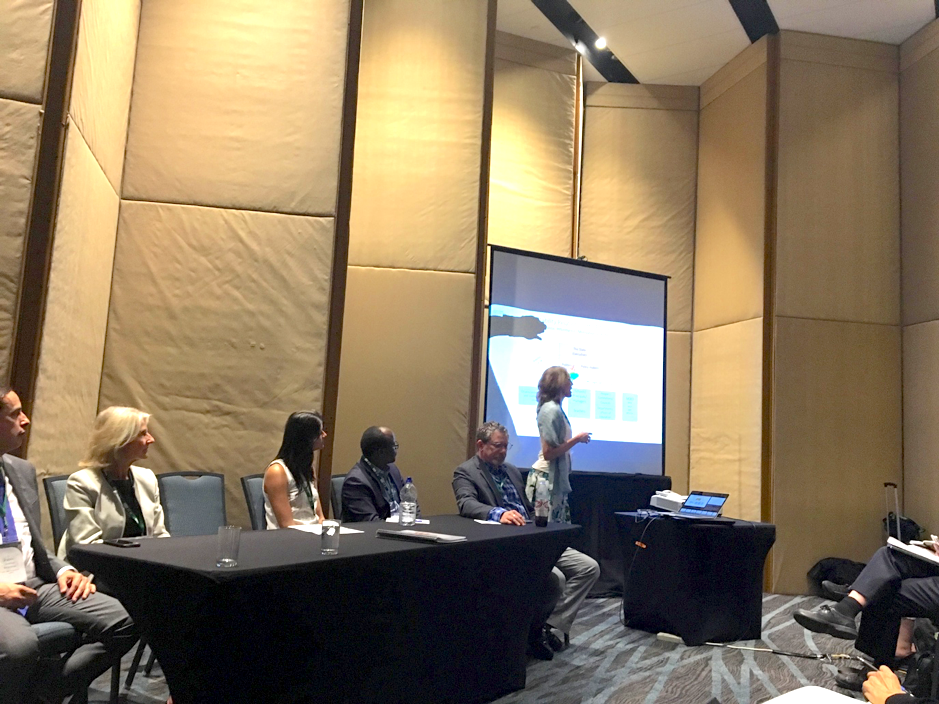
The final panellist, Barbara Bruns, presented “The Politics of Transforming Education in Ecuador: Confrontation and Continuity, 2006-17”, a paper that she co-wrote with Ben Ross Schneider (MIT) and Pablo Cevallos Estarellas (UNESCO IIEP). Bruns pointed out that the main difference between the politics of schooling and the politics of learning is that the latter requires higher political costs for governments and policymakers. An example of this is Ecuador, who implemented reforms focused on the quality of teaching to increase the overall quality of education. Other countries in the region (Chile and Peru) had undertaken similar reforms and were having positive results as expressed in their PISA scores. However, the case of Ecuador is the most dramatic, having the fastest learning gains. The reforms implemented by Ecuador were politically difficult, and faced the opposition of teacher unions. Nevertheless, there were unique “tailwinds” that facilitated the implementation and sustainability of these policies. First, there was a deep sense of the educational crisis that Ecuador faced, which was demonstrated in the national referendum on education that showed that citizens supported the educational reform. Second, the political will of the government, who supported traditionally difficult policies to implement such as: higher standards for teacher recruitment and training, individual performance evaluations, promotions based on meritocracy, and dismissal from a public career in cases of repeated bad performance. Third, the commodity boom of the 2000s provided the government with additional revenue and allowed the country to increase education spending from 1 percent of GDP in 2000 to more than 5 percent (of an expanded GDP) in 2014. And finally, the continuity in the Ministry of Education’s top leadership and technical staff ensured the reforms were adapted and in place for a number of years.
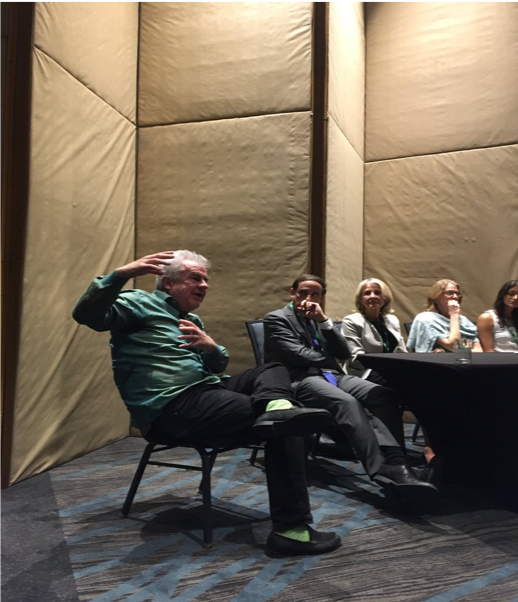
A rich conversation between the participants and the panellists followed the presentations. There seemed to be a general consensus on the need for more research on political economy of education reforms across developing countries, and on its relevance to understand how to tackle large scale system-level change to improve learning outcomes.
Author bios:
RISE blog posts and podcasts reflect the views of the authors and do not necessarily represent the views of the organisation or our funders.


